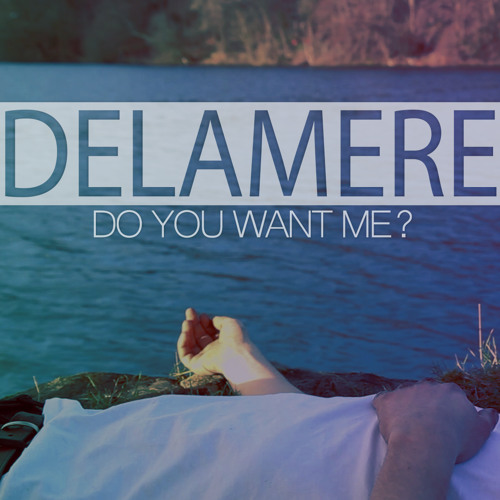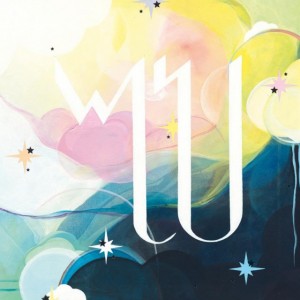
U&I:
Hi guys, thanks for taking the time out to have a chat with us. First
of all, you've recently released your debut album Waking Lines on the
6th of January and we already know that many bloggers and
journalists, myself included, have been singing it's praises, but how
has been received by the wider public?
P:
We've
been really excited to see the response from people across the world.
When you've spent so much time in isolation creating an album its a
strange feeling to have people listening to it and interacting with
it. We get a lot of stuff coming through Facebook and twitter but it
only became real when we played our launch show in London and had so
many people telling us how much the album meant to them.
U&I:
What was the best part of the recording process, any particular
favourite tracks that came together really easily, or conversely,
were there any songs which caused disagreements or problems in the
studio?
P: The
album was recorded in a slightly unconventional way in that we did
the drums in a proper studio but then everything else was home
recorded; so part of the joy of the whole process was being able to
take a lot of time on all the elements. The title track "Waking
Lines" is a good example of that because we took a very long
time to put together all the elements but it eventually produced one
of the more interesting pieces on the record.
U&I:
Being from Manchester there's obviously a certain stereotype people
feel you need to live up to; something you completely try to distance
yourself from on your website. What do you think it is about the city
that make people envision artists in a certain way, or even make
bands act in a certain way?
P:
Well
I think there are quite strong cultural associations around the
Manchester music scene that colour peoples expectations of you as an
artists. This often means journalists try to place you within the
broader narrative of the musical history here. Certainly when we
started playing there were a lot of bands who felt the need to embody
the lad rock or "Madchester" aesthetic but I definitely
don't think that's the case any more.
U&I:
On the other hand, whilst people seem to try and leave up to some
kind of stereotype, Manchester's also home to a multiplicity of bands
from varying genres and backgrounds. What do you think it is about
the city that makes it so diverse?
P:
Yeah
I think the reality of the scene is much more diverse and interesting
now. There are so many distinct groups within the city making really
interesting and different music. I think in that sense there is a
positive side to the musical heritage because people associate the
city with music and want to come here to form bands, put on
club-nights, and open venues; its a musical city.
U&I:
In a previous interview, Ciaran revealed he felt there was a
“sense...within the music industry you are only ever taken
seriously when you have an album...”. Since the release of Waking
Lines, do you feel you've started to be taken a bit more seriously as
a band, or is it still early days yet?
P:
We've
certainly felt things shift. When you only have a few singles out its
very difficult for people to have a sense of who you are as a band or
if you're even good enough to make an entire album of music. So now
that our album is out we're really happy that people are responding
so well to what we've created.
U&I:
Manchester is a city full of different venues, from a completely
vacuous arena to 50 people dive bars. What are some of your
favourites either to gig yourselves or see a gig at?

P:
The
Deaf Institute has always been one of our favourite every day venues
to both see bands as well as play ourselves. The best gig we've
played in Manchester has got to be in the John Rylands library which
is this amazing old Gothic building in the centre of town. We're one
of only a handful of bands to have ever been allowed to play there
and it was an incredible experience
U&I:
Similarly, you must have heard about the sceptical future of the
Night & Day venue due to a single noise complaint. What are your
views on that, and do you think it will signify the start of a trend
within the city, in which established venues are subject to stricter
noise laws, despite their cultural significance?
P:
I
think there are serious questions here about how we conceive of the
purpose of our city centers. You see this kind of problem happen in
London a lot when an area becomes trendy because of genuinely
interesting cultural development but then its over run by yuppies who
just want to be buy flats there while not actually being part of the
community. The quintessential Manchester example of this is the
Hacienda which was far more lucrative as apartments than it was as a
venue. We can't have the cultural value of our city centres eroded by
the demands of property owners and the local councils who support
them. The response to this issue has been great though so I don't
think the city will take this lying down.
U&I:
You've just announced a one-off gig in St Philips Church, Salford,
complete with 30 piece orchestra. How did that come about and what
can we expect from the gig?
P:
A
gig with a choir was something we've always wanted to do as choral
music has always been an influence on us, but the costs and
complexity of it meant we had to wait. It was only after getting
funding from the Arts Council that we knew the whole thing would be
possible. We're in the middle of quite a big rehearsal schedule at
the moment with the choir, so its all really exciting that its
happening. We've also got two great supports with Beaty Heart and
U.V. so we can't wait to play.
U&I:
You've seemingly made somewhat of a name for yourselves with your
live shows, most notably for their visual accompaniments, how did
these come about, and can we expect them to become more ambitious in
the future?
P: Creating
a complete live experience has always been really important to us. We
do a lot of experimentation with video footage and when the venue is
right we can go crazy with the kind of projections we do. As we tour
this record we have some big plans for how we're going to evolve the
live experience.
U&I:
There's currently a whole host of bands from Manchester making a name
for themselves, MONEY, PINS, yourselves. Most of which have a pretty
different sound from your typical Manc lad band, why do you think
this is?
P: Manc
lad bands don't really exist anymore which is a great thing. One of
our biggest problems with guitar music is its consistent association
with a certain idea of masculine identity. Not only does this exclude
women from legitimately being allowed to make "guitar music"
but it artistically limits you to certain types of "austere
"strong" and "ladish" male expression. Our music,
as well as that of Money and Pins, doesn't feel reductive in that
sense.
U&I:
Finally, is there anything you'd like to announce to our readers?
Tour news? Your next single? Or any parting words of wisdom you'd
like to leave us with?
P:
We'll
be doing a tour across the UK from March 14th which we're really
looking forward to. Also our next single from the album is "Street
fires" which will be out soon.
U&I:
Thanks guys, it's been a pleasure.
This interview was originally conducted for U&I Music Magazine's February issue. Click here to check it out.











